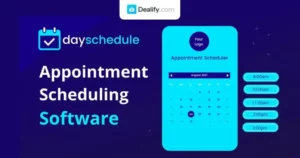The most popular CRM systems enhance business efficiency by improving customer relationships, automating sales tasks, and providing valuable data insights. By choosing the right CRM and avoiding common pitfalls, businesses can effectively manage customer interactions and drive growth.
The most popular CRM systems are essential for modern businesses aiming to enhance customer relationships and streamline operations. In today’s competitive landscape, choosing the right CRM can be a game-changer. This article delves into the features, benefits, and key considerations when selecting the perfect CRM for your unique business needs.
What is CRM and Why is it Important?
CRM stands for Customer Relationship Management. It represents a technology used by businesses to manage interactions with customers, streamline processes, and improve profitability. In a world where customer experience is key, CRM systems are essential tools that help companies understand their customers better.
Importance of CRM
Implementing a CRM allows businesses to attract new customers while retaining existing ones. By maintaining a database of customer information, sales teams can track client preferences and behaviors, enabling personalized communication.
How CRM Enhances Customer Experience
With a CRM, businesses can provide timely responses to inquiries and anticipate customer needs. This proactive approach helps in building strong relationships and fostering loyalty. Moreover, CRM solutions offer analytic capabilities that can identify trends, helping businesses tailor their marketing strategies effectively.
Centralized Data Management
A key benefit of using a CRM is centralized data management. It stores all customer information in one place, ensuring easy access for employees. This not only aids in collaboration but also helps maintain consistency in customer communication, which is vital for maintaining a positive image.
In summary, understanding the role of CRM is vital for any business looking to thrive in today’s competitive environment. It sets the foundation for successful customer relationships and sustainable growth.
Top Features of Most Popular CRM Solutions

The most popular CRM solutions come packed with features that enhance customer relationship management and drive business success. Understanding these key features can help businesses find the right CRM system that fits their needs.
1. Contact Management
A core function of any CRM is contact management. This feature allows businesses to store and organize customer information such as names, contact details, and interaction history. With easy access to this data, sales teams can personalize their communication effectively.
2. Sales Automation
Sales automation simplifies repetitive tasks in the sales process. This includes lead tracking, follow-up reminders, and email communication. By automating these tasks, sales representatives can focus on building relationships and closing deals.
3. Analytics and Reporting
Most popular CRM solutions provide robust analytics and reporting tools. These features help businesses track sales performance, customer behavior, and marketing campaign effectiveness. Visual dashboards make it easier to interpret data, allowing for informed decision-making.
4. Integration Capabilities
Integration with other tools is crucial for a seamless workflow. Top CRM systems often offer integrations with email platforms, marketing automation tools, and other business software. This ensures that all customer interaction data is centralized, enabling better collaboration across teams.
5. Customer Support Features
Customer support functionalities are another highlight of popular CRM solutions. These features include ticketing systems, live chat options, and help desk management, allowing businesses to address customer inquiries and issues quickly and efficiently.
How to Choose the Right CRM for Your Business?
Choosing the right CRM for your business is essential for maximizing efficiency and improving customer relationships. Here are key steps to guide your decision-making process.
1. Assess Your Business Needs
Begin by analyzing your organization’s specific needs and goals. Consider factors such as the size of your business, the number of users, and the types of customer interactions you typically have. Understanding what you want from a CRM helps narrow down your options.
2. Evaluate Key Features
Focus on the features that are crucial for your business. Look for essential capabilities such as contact management, sales automation, reporting tools, and integration with other systems. Make a list of must-have features and compare them across different CRM solutions.
3. Consider Scalability
Ensure that the CRM can grow with your business. As your organization expands, your CRM should accommodate increased data and additional users without compromising performance. Choose a system that allows upgrades and additional features as needed.
4. Check User Experience
A user-friendly interface is vital for encouraging adoption among your team. Look for CRMs that provide intuitive navigation, customization options, and accessible support resources. A good user experience leads to higher engagement and productivity.
5. Take Advantage of Free Trials
Many CRM providers offer free trials. Take advantage of these opportunities to test the system in real scenarios. Involve your team in the trial to gather feedback and ensure it meets everyone’s needs.
Benefits of Implementing a CRM System

Implementing a CRM system offers several benefits that can enhance a business’s efficiency and customer relationships. Understanding these advantages can help organizations leverage their CRM to the fullest.
1. Improved Customer Relationships
One of the primary benefits of a CRM system is its ability to improve customer relationships. By keeping track of all interactions, businesses can provide personalized services, address customer concerns quickly, and foster stronger connections with clients.
2. Enhanced Data Management
A CRM system centralizes all customer data in one location. This organized approach helps businesses manage contacts, track sales activities, and store important documents, making access easier and improving data accuracy.
3. Increased Sales Efficiency
With automation of sales tasks, such as follow-up reminders and lead tracking, CRM systems boost sales efficiency. Sales teams can focus on engaging with customers rather than getting bogged down by repetitive tasks.
4. Powerful Analytics and Insights
CRM systems often include reporting tools that provide valuable insights into customer behavior and sales performance. This data helps organizations make informed decisions and tailor marketing strategies to better meet customer needs.
5. Better Collaboration Among Teams
Collaboration is essential for business success, and CRM systems facilitate teamwork. By providing a shared platform for data, team members can easily communicate and collaborate on customer projects, ensuring everyone is on the same page.
Common Mistakes to Avoid When Using a CRM
Using a CRM system effectively can greatly benefit your business, but there are common mistakes that companies should avoid to maximize its potential.
1. Neglecting User Training
One common mistake is underestimating the importance of user training. When employees lack proper training, they may not use the system to its full capabilities. Providing comprehensive training ensures that everyone knows how to navigate the CRM and utilize its features effectively.
2. Not Maintaining Clean Data
Data quality is paramount in a CRM. Failing to maintain clean and updated records can lead to confusion and miscommunication. Regularly audit and cleanse your data to remove duplicates, outdated contacts, and inaccuracies to keep your CRM reliable.
3. Overcomplicating the System
Sometimes, organizations add too many features to their CRM, making it complicated for users. Focus on implementing only the features that align with your business needs. A streamlined system is easier to use and will encourage adoption among team members.
4. Ignoring Customer Feedback
Another error is not soliciting and applying customer feedback. Engaging with customers to understand their needs can provide valuable insights that can improve how you use your CRM to enhance customer relationships and service.
5. Failing to Integrate with Other Tools
Many businesses make the mistake of using their CRM in isolation. To maximize efficiency, integrate your CRM with other business tools such as marketing automation, email, and customer support systems. This allows for a more cohesive approach to managing customer relationships.
In Summary: Unlocking the Power of CRM
Implementing a CRM system can significantly enhance your business operations. By understanding its benefits, avoiding common mistakes, and choosing the right system, companies can build stronger customer relationships and drive sales growth.
Regular training, data management, and integration with other tools are essential for maximizing a CRM’s effectiveness. When used correctly, a CRM becomes an invaluable asset that streamlines processes and supports sustainable growth.
As you continue to explore CRM options, remember that the right choice can help your business thrive in today’s competitive environment.
FAQ – Frequently Asked Questions about CRM Systems
What is a CRM system?
A CRM system is a tool that helps businesses manage customer relationships, track interactions, and organize customer data in one place.
How can a CRM improve customer relationships?
By tracking customer interactions and preferences, a CRM enables businesses to personalize communication and respond to inquiries more effectively.
What are the key features to look for in a CRM?
Important features to consider include contact management, sales automation, analytics, and integration capabilities with other tools.
Why is training important for using a CRM?
Proper training ensures that employees understand how to use the CRM effectively, maximizing its benefits and improving overall productivity.
What common mistakes should I avoid when using a CRM?
Avoid neglecting user training, failing to maintain clean data, overcomplicating the system, and not integrating it with other business tools.
How can I ensure my CRM data is accurate?
Regularly audit and cleanse your data by removing duplicates, updating contact information, and correcting inaccuracies to maintain data quality.




